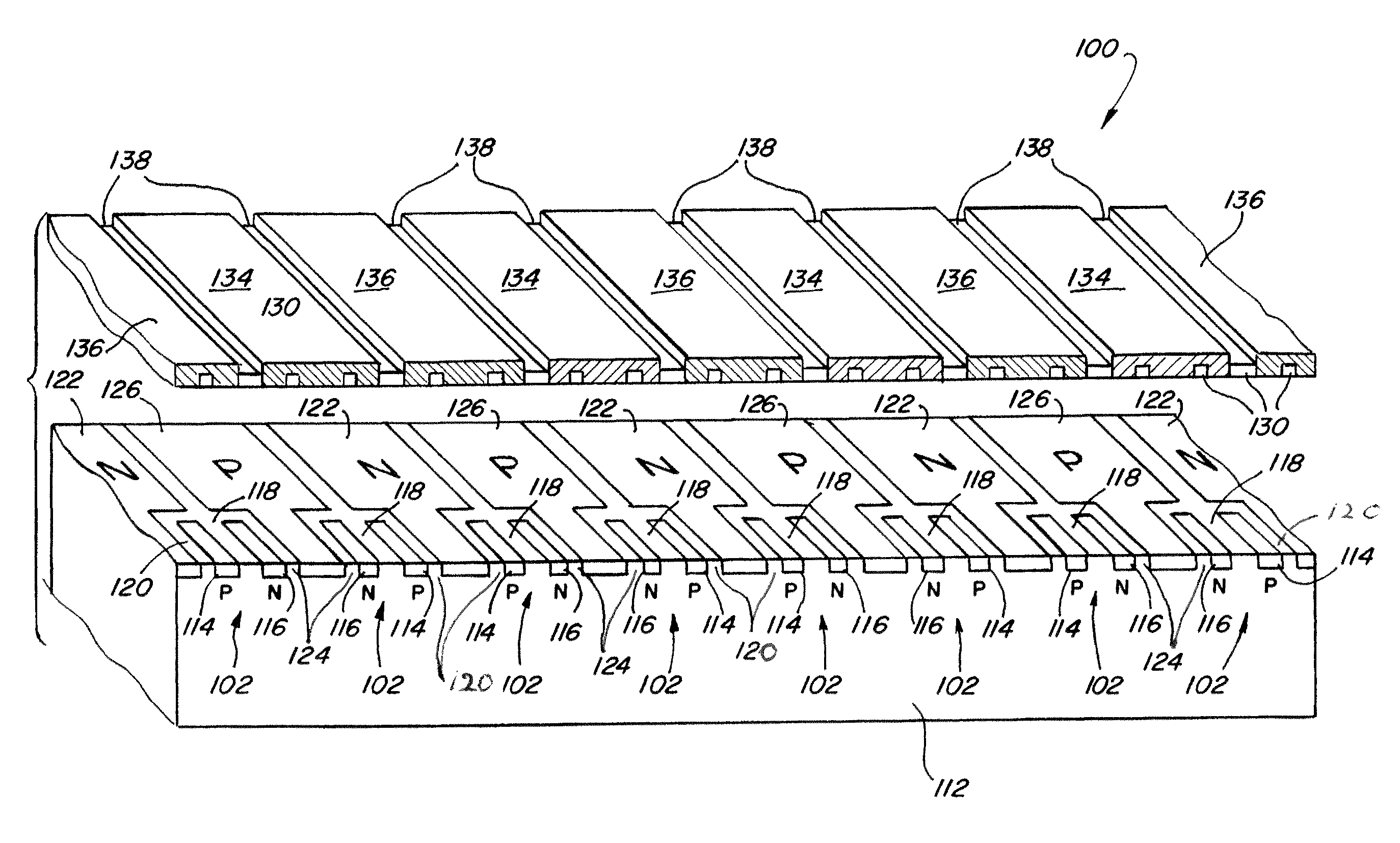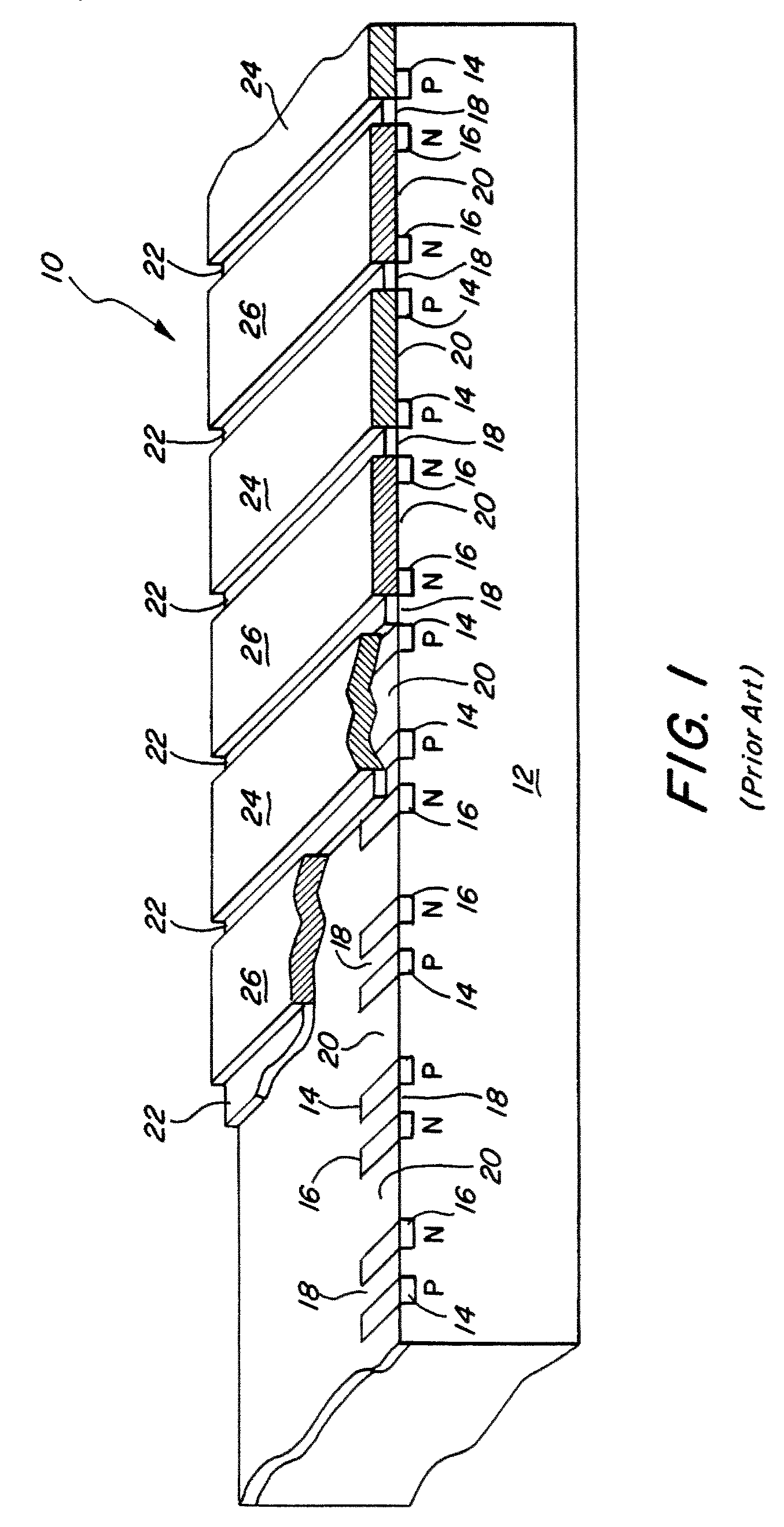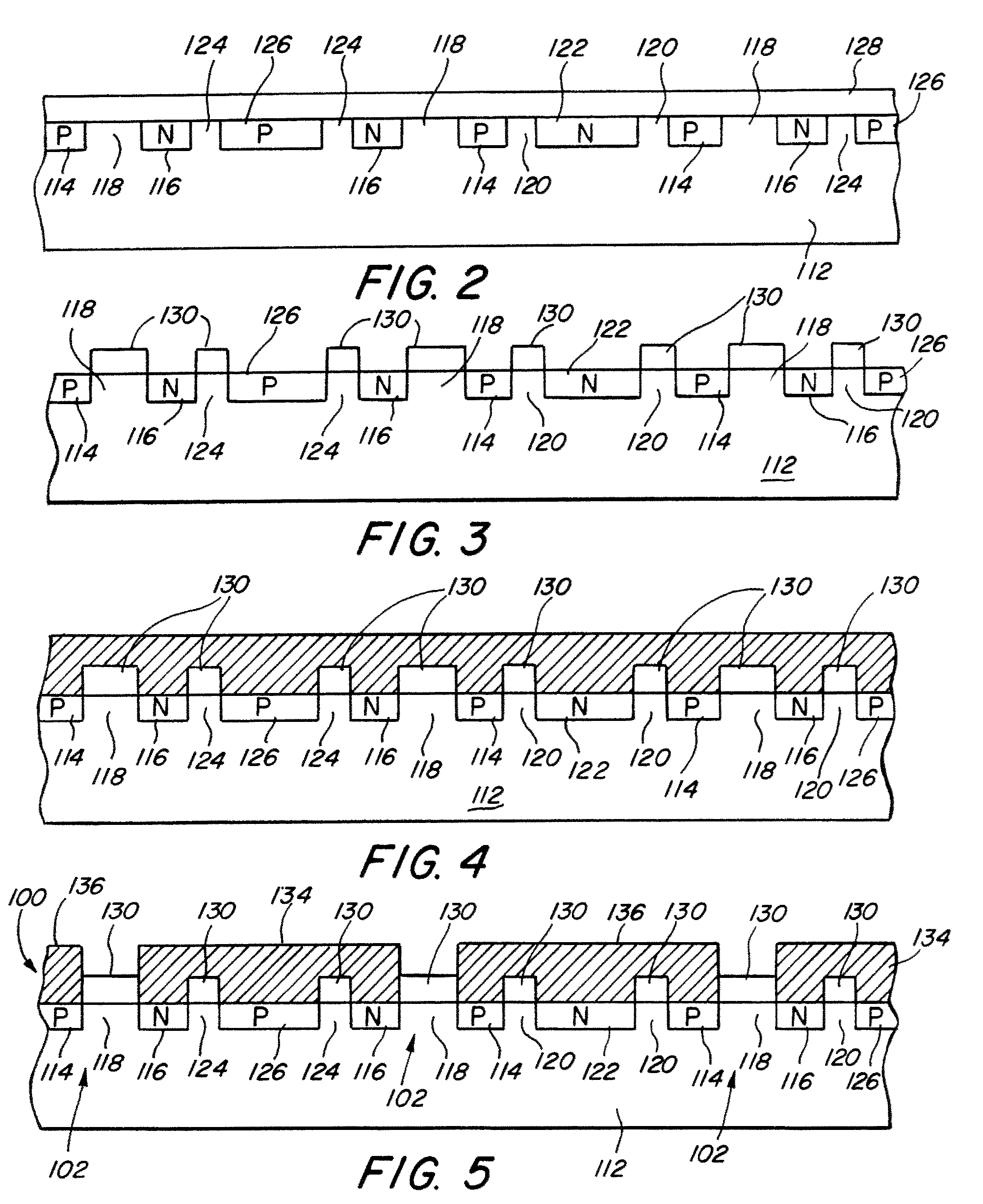Monolithic semiconductor microwave switch array
a semiconductor and microwave switch technology, applied in the field of semiconductor switches, can solve the problems of degrading the performance of the switch and slot line, and affecting the operation of the array as a whole, so as to achieve the effect of reducing or eliminating the effect of potential
- Summary
- Abstract
- Description
- Claims
- Application Information
AI Technical Summary
Benefits of technology
Problems solved by technology
Method used
Image
Examples
Embodiment Construction
[0019]FIGS. 5, 6, and 7 show a monolithic array 100 of semiconductor microwave switches 102, in accordance with the present disclosure, while FIGS. 2, 3, and 4 show several steps in the fabrication of the array 100. The array 100 of the switches 102 is formed on a wafer or substrate 112 of undoped semiconductor material, such as Si, Ge, or GaAs. Each of the switches 102 is a PIN junction switch, comprising a first PIN junction provided by a first P-doped region that serves as a primary P-type electrode 114 and a first N-doped region that serves as a primary N-type electrode 116, the primary electrodes 114, 116 being separated by an insulative region 118 of undoped substrate material. A second PIN junction is provided by forming a second N-doped region separated from the primary P-type electrode 114 by a first isolation gap 120, the second N-doped region serving as a secondary N-type electrode 122. A third PIN junction is provided by forming a second P-doped region separated from the...
PUM
 Login to View More
Login to View More Abstract
Description
Claims
Application Information
 Login to View More
Login to View More - R&D
- Intellectual Property
- Life Sciences
- Materials
- Tech Scout
- Unparalleled Data Quality
- Higher Quality Content
- 60% Fewer Hallucinations
Browse by: Latest US Patents, China's latest patents, Technical Efficacy Thesaurus, Application Domain, Technology Topic, Popular Technical Reports.
© 2025 PatSnap. All rights reserved.Legal|Privacy policy|Modern Slavery Act Transparency Statement|Sitemap|About US| Contact US: help@patsnap.com



